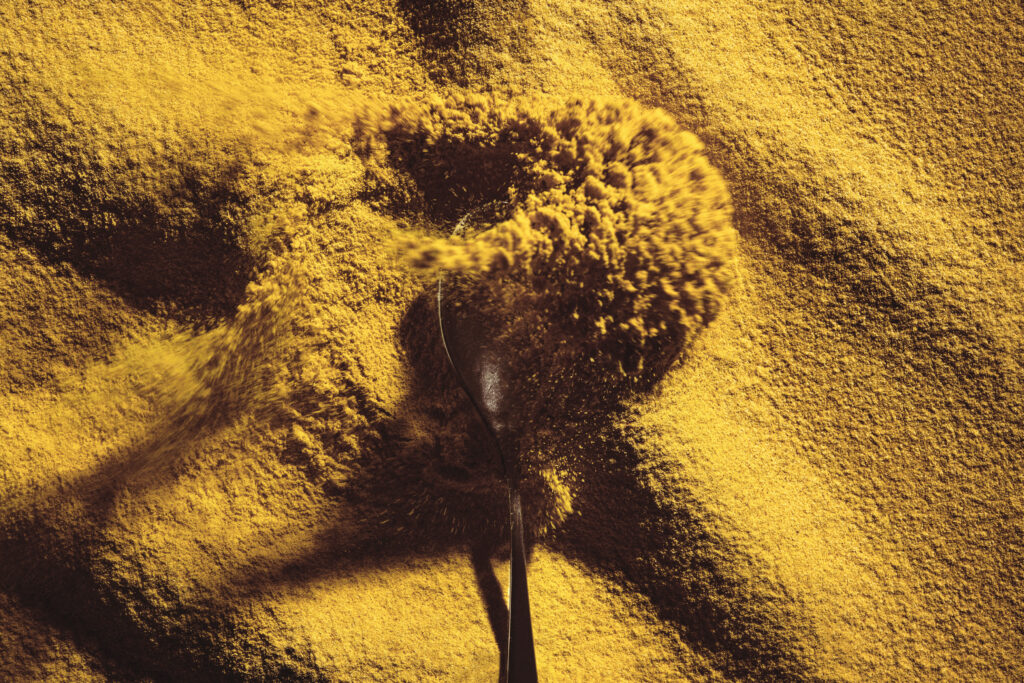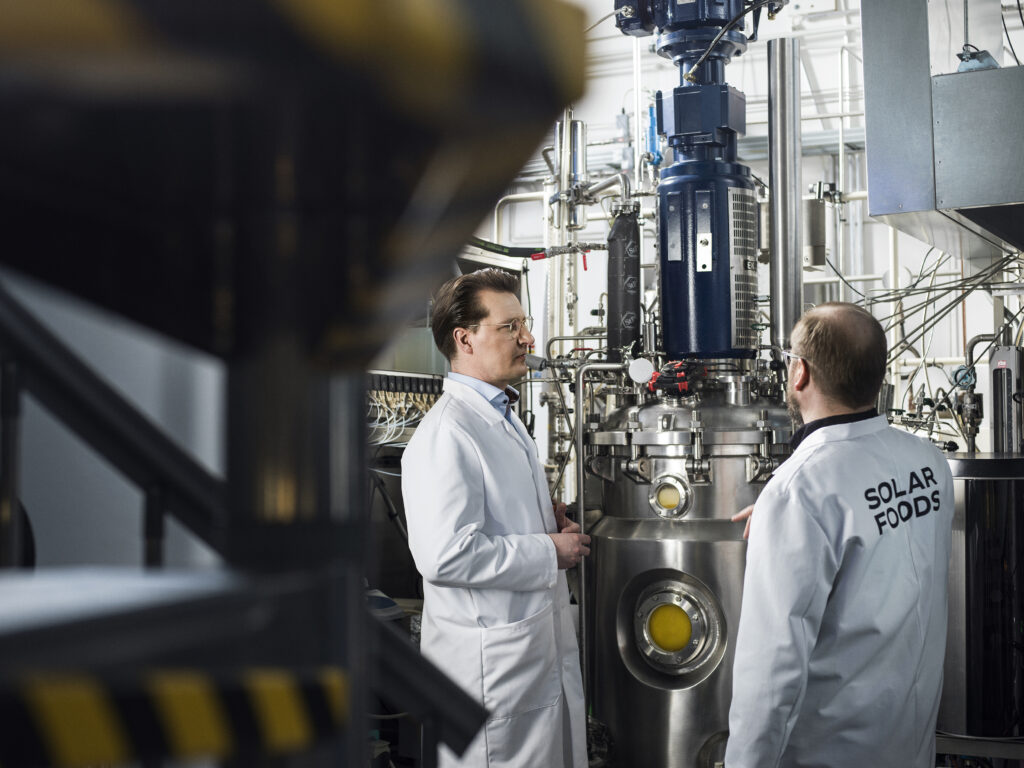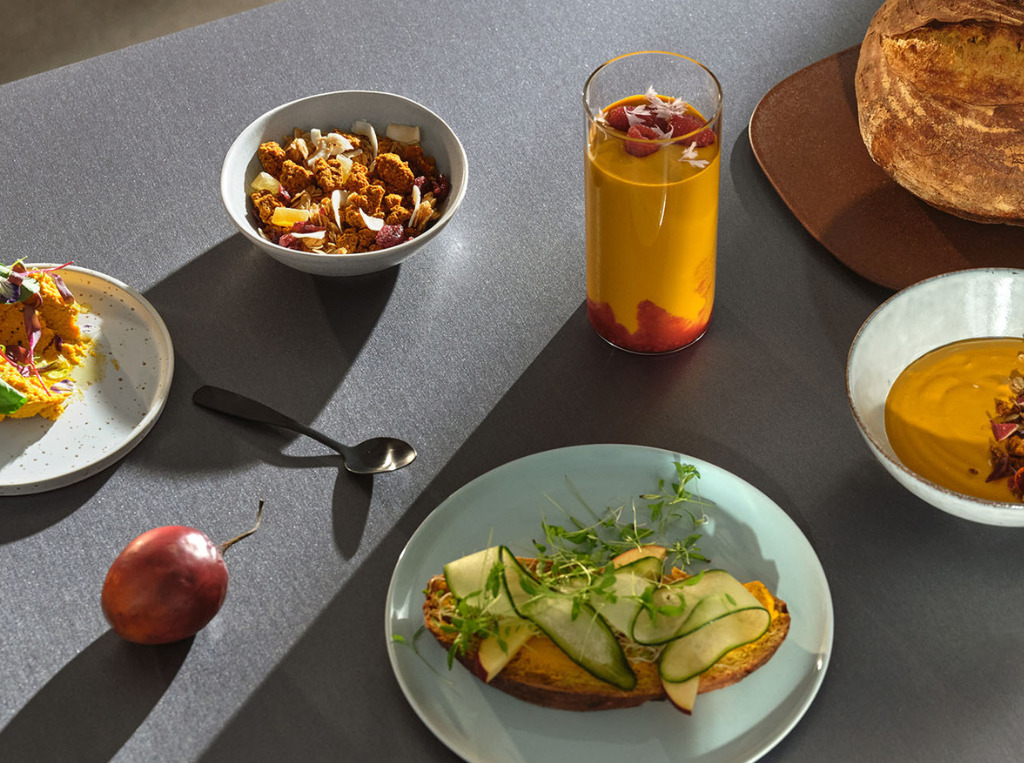Solar Foods: Solein Protein Maker Bags $8.8M in Series B Funding for New 2024 Factory
5 Mins Read
Finnish startup Solar Foods has closed an oversubscribed €8M ($8.8M) Series B funding round to expand the production of its Solein protein made from air and support the construction of its Factory 01, slated to be operational in the first half of 2024.
With a Series B round that was fully subscribed nearly two weeks ahead of schedule, Solar Foods’ protein from air is getting ready for takeoff. The €8M ($8.8M) investment was led by Finland’s Springvest Oyj, while existing investors including Happiness Capital, Lifeline Ventures, VTT Ventures and Fazer participated via a private placement.
This is according to cellular agriculture investor Agronomics, which has invested €6M ($6.6M) in the startup via €3M ($3.3M) rounds each in its Series A funding in September 2020 and in the form of a pre-Series B Convertible Promissory Note in October 2021.
The latest financing brings the total raised to over €43M ($47.1M) in equity, with an additional €30M ($32M) in debt financing. Solar Foods says the latest funds will be used to build and ramp up production of its Solein protein from air at its first commercial-scale facility called Factory 01, which is set to begin operations next year. The investment will also help it utilise new production organisms and commercialise Solein in food products.
“The oversubscription, the still-growing waiting list and the funding round reaching its maximum target sooner than expected are all outstanding news for us. It is incredibly uplifting to see that so many want to be part of our journey,” said Solar Foods co-founder and CEO Pasi Vainikka. “The success of this round leads us to think about how a new similar opportunity should be arranged, including an opportunity for international participation.”

A strongly backed protein solution
Founded in 2017 as a spinout of the VTT Technical Research Centre of Finland and LUT University, Solar Foods makes what it calls the “world’s most sustainable protein”. It uses microbial fermentation to turn carbon dioxide, hydrogen and oxygen (which replace sugar as an energy source) into its protein ingredient, in a process that eschews the need for open land, fertilisers and pesticides, and irrigation.
In fact, the fermentation process – similar to winemaking – means the protein is not dependent on water, weather, climate conditions or agriculture, and can even be produced in desert-like conditions, the Arctic and outer space (it has partnered with the European Space Agency to develop a system for producing food on Mars). The microbes are grown in a liquid form, and eventually transformed into an orange-coloured dry powder.
Agronomic outlines that since its first investment in Solar Foods, the startup has made “significant technical, regulatory and operational progress”, including an increase in the productivity of its organism by over 10 times. In December 2022, it received €34M ($37.3M) in grant funding to support the construction of Factory 01, which has been called “the world’s first commercial facility to produce food by using carbon dioxide and electricity as its raw materials”.
This grant added to a host of investments made in Solar Foods over the last few years. In February 2022, it raised €10M ($10.9M) from the Pharmacy Pension Fund of Finland, a year after it secured the same amount from the state-owned Finnish Climate Fund. In December 2020, it received a €4.3M ($4.7M) grant from Business Finland.
Speaking about the Series B round, Vainikka told Tech.eu: “This funding is more than a financial boost: it’s a mark of confidence in the future of sustainable food solutions that Solar Foods represents. We are excited to channel these resources into our new factory and amplify our impact in the food industry.”

Market debut and regulatory approval
According to a life-cycle analysis, Solein emits just 1% of greenhouse gas emissions compared to conventional meat and 20% compared to plant-based proteins. It has a strong nutritional profile too, with 65-70% of protein, 5-8% of fat, 10-15% of dietary fibre and 3-5% of mineral nutrients. Solar Foods says its macronutrient profile is similar to dried soy or algae, and contains iron and B vitamins, which are essential nutrients often sourced from animal ingredients.
In October 2022, Solar Foods received regulatory approval for Solein in Singapore, allowing it to sell the carbon-captured protein in the island nation. At the time, Vainikka likened the protein’s development to the discovery of the potato. “We are introducing an entirely new ingredient to the world of food,” he said. “It’s a watershed moment for how we think of what we eat.”
This approval was followed by Solein’s debut at Singaporean eatery Fico, which began selling a vegan chocolate gelato made from the flavourless protein. But it’s not just dairy that Solein can replace – the ingredient has already been demoed in over 20 different foods, including burgers, eggs and meatballs. “Solein vanishes into daily meals, while at the same time maintaining its rich nutritional value and offering a unified solution that caters to virtually every imaginable meal of today and tomorrow,” co-founder and CTO Juha-Pekka Pitkänen, has previously explained.

Solar Foods has also submitted a dossier to the European Food Safety Authority for EU approval. And in addition to the €34M grant for its Factory 01, it has a further €76M ($83.2M) earmarked for Factory 02 “if we were to build on European soil” as Vainikka told AFN. Moreover, the company has a strategic partnership with Japanese food company Ajinomoto, which entails product development with Solein and a marketability study set to begin early next year.
Solar Foods’ Solein isn’t the only CO2-based protein on the market. One competitor is called Air Protein, a subsidiary of Californian biotech firm Kiverdi. Other similar companies include Dutch startup Farmless, which uses methylotrophs (microorganisms that consume methanol) and Austria’s Arkeon Biotechnologies. Meanwhile, companies like NovoNutrients, Calysta (both Californian) and Deep Branch Biotech (UK) are producing such proteins for livestock and fish feed.



